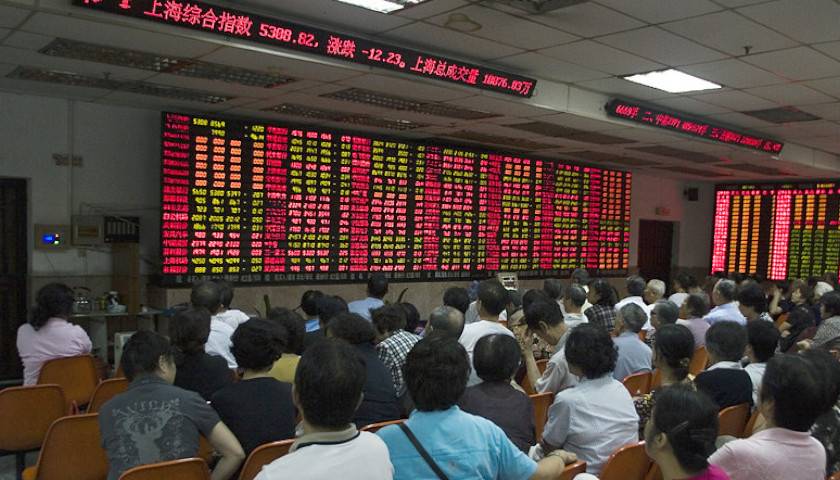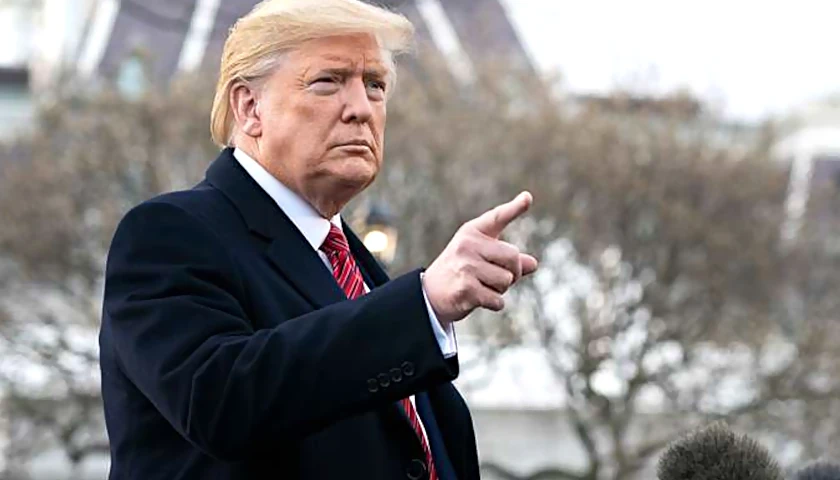by Will Kessler
New data from China shows the country’s economy is still failing to recover from the loss of growth it has seen since the COVID-19 pandemic, according to The Wall Street Journal.
While China’s economy did grow in November in a number of key areas, it was lower than economists’ expectations and was bolstered by a comparison from last year, when the country still maintained strict COVID-19 restrictions, according to the WSJ. Retail sales, which supports the key growth factor of domestic consumption, only rose by 10.1% year-over-year compared to the 12.9% growth that was expected, and fixed-asset investment rose 2.9% from January to November, as opposed to expectations of 3%.
“Today’s data shows a flurry of supportive measures has not yet been successfully translated into near-term growth due to weak business confidence,” Bruce Pang, chief China economist at Jones Lang LaSalle, told the WSJ.
 The country’s debt-laden real estate sector showed no signs of improvement in November, with average home prices falling 0.7% for the year, greater than the 0.58% decline seen in October, and both property investment and home sales declined as well, according to the WSJ. Companies responsible for 40% of Chinese homes have defaulted on their debt since 2021, with top developers Country Garden and Evergrande both recently striking deals to manage their huge debts.
The country’s debt-laden real estate sector showed no signs of improvement in November, with average home prices falling 0.7% for the year, greater than the 0.58% decline seen in October, and both property investment and home sales declined as well, according to the WSJ. Companies responsible for 40% of Chinese homes have defaulted on their debt since 2021, with top developers Country Garden and Evergrande both recently striking deals to manage their huge debts.
Institutional Investors have withdrawn more than $31 billion from Chinese Stocks and Bonds this year, the highest net outflow since China joined the World Trade Organization in 2001 👀 pic.twitter.com/JDzLcMqO0r
— Barchart (@Barchart) December 8, 2023
China’s industrial output did show better than expected growth, increasing 6.6% year-over-year in November, outdoing economists’ expectations, according to the WSJ.
In response to the concerning data, China’s central bank flooded the equivalent of $112 billion in capital into the financial system in an effort to increase market liquidity, the largest amount ever supplied in China using one-year loans, according to the WSJ. Chinese leaders have not announced any stimulus packages to boost household spending, but do plan on increasing fiscal and monetary policy support in the next year.
Foreign investors are increasingly pulling capital out of the Chinese financial system in response to the stagnating economy and rising tensions with the West. In 2023, investors withdrew $31 billion from China and are expected to pull another $65 billion out in 2024.
The Biden administration has attempted to ease economic tensions with China as the two countries remain in a trade war over the semiconductor industry, with the U.S. leveraging its intellectual property and China exercising its dominance over the production of rare earth minerals. Treasury Secretary Janet Yellen gave a speech on Thursday to the U.S.-China Business Council, emphasizing the Biden administration’s support for continued communication with China and vowing not to economically decouple.
– – –
Will Kessler is a reporter at Daily Caller News Foundation.
Photo “Chinese Stock Market” by 2 dogs. CC BY-NC-ND 2.0.




